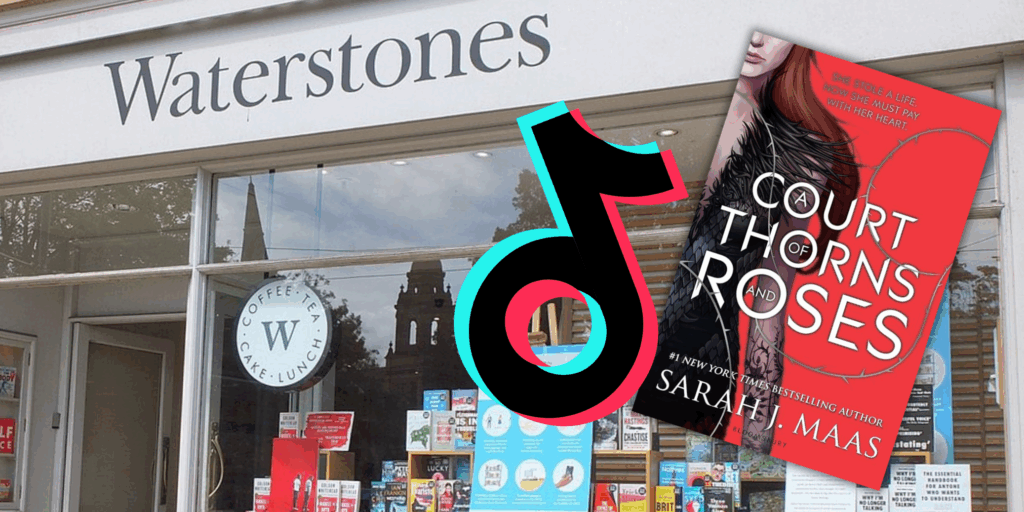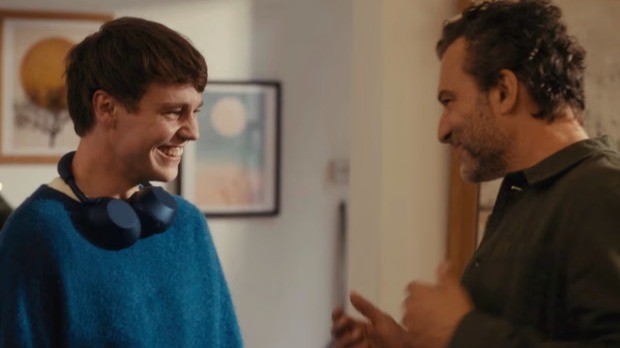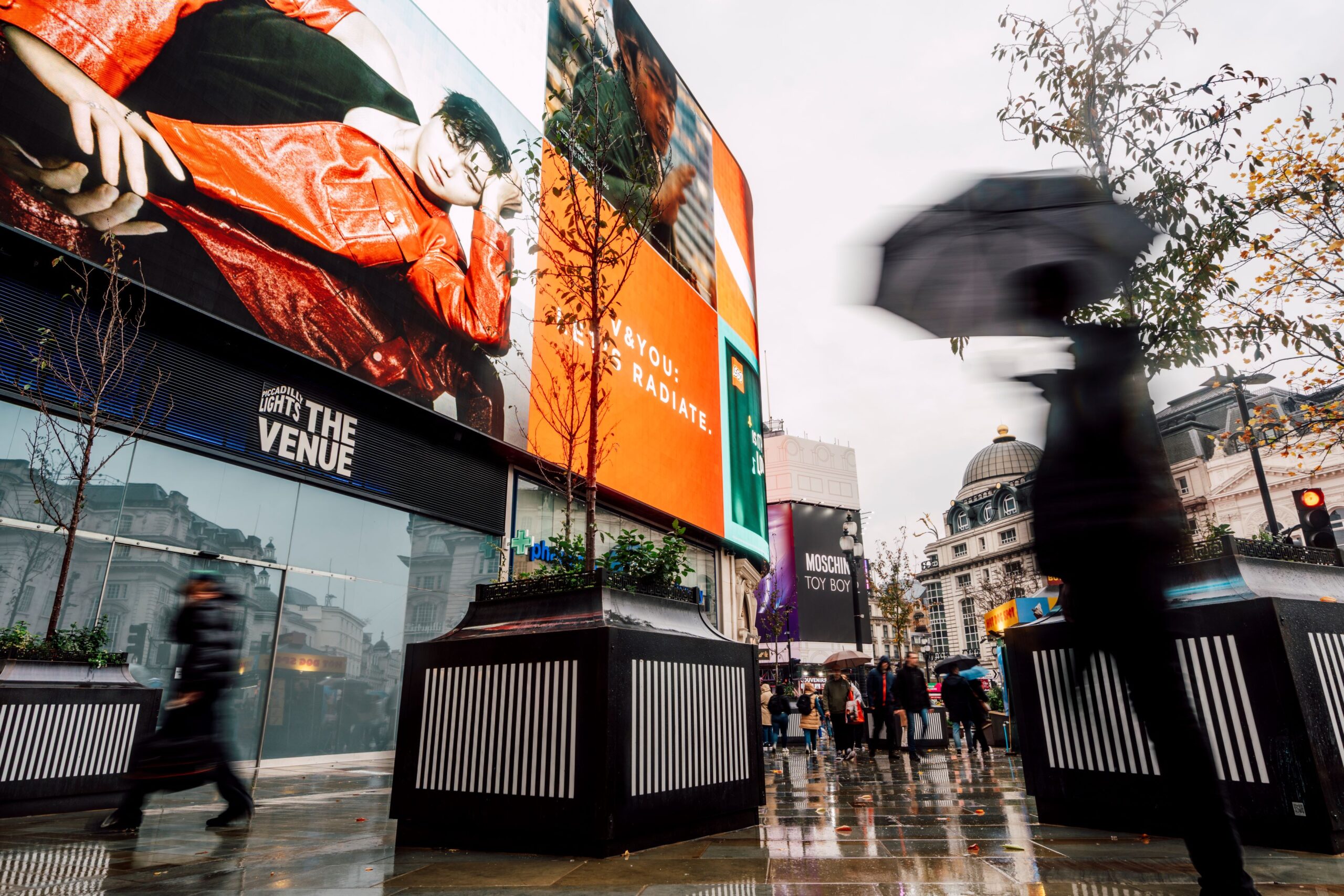This Saturday is National Read a Book Day which, whether you’re curled up with a gripping novel, exploring a new genre or simply enjoying a quiet moment, is the perfect day to celebrate the magic of reading, writes Danielle Williams.
And in light of this, there’s no better time to talk about a major shift happening in the book world, with Waterstones announcing that it’s going to open 10 new shops a year.
This is a move which signals an unexpected but hopeful future for high street bookshops and it’s been driven by a social media phenomenon that’s been sweeping the book world – BookTok.

BookTok, if you haven’t heard of it, is a part of TikTok where book lovers come together to discuss, review and recommend books.
These are people who enjoy reading as a regular hobby and use books as a way to disconnect from the noise of digital life – which is exactly what BookTok is helping to fuel.
In turn, this online community has become a key driver of sales for many books, especially in the romance and fantasy genres, with titles like Sarah J Maas’ A Court of Thorns and Roses, also known as ACOTAR, having exploded in popularity.
Death of reading is off the mark
These books are now selling out in stores across the country, thanks especially to younger readers, showing that doomsday predictions about the “death of reading” and the inevitable demise of the UK high street are looking more and more off the mark.
As someone who is deeply immersed in the BookTok community and has been present in reading spaces since I was a teenager, I can attest to the incredible power it has to bring people together who have shared literary interests.
I’ve met countless readers who, like me, feel the thrill of discovering a hidden gem or engaging in passionate discussions about our favourite characters.
The videos, the hashtags, the recommendations; it’s like one big, enthusiastic reading club. But, and I’m not the only one to say this, it also comes with a fair amount of discourse.
For every viral book recommendation, there seems to be a counterpoint, opinions on why a popular book isn’t as great as people make it out to be or why a specific genre is being overhyped.
It’s a place where readers share both their adoration and their frustrations with the same books. In a way, it reflects the complexities of literature itself: no book is universally loved, and BookTok thrives on those differences.
And yet, despite the drama and constant back-and-forth, the one thing that stands out to me is the community.
It’s a space where we all have a voice, where anyone can jump in with their opinion or recommendation. I may not agree with everyone on every book, but the fact that we can engage in these discussions at all is part of what keeps the community so vibrant and exciting.
In a world where so much of our interactions are curated by algorithms or dictated by corporate interests, BookTok is something raw, something real.
BookTok: The Double-Edged Sword
But BookTok is not without its critics.
Some people argue that BookTok represents the death of literature, suggesting that its focus on viral, trendy books overshadows more diverse or “serious” works.
In fact, many argue that BookTok has pushed certain books to the forefront that may not have been the literary classics of the future, at least not in the way we usually define them.
With influencers driving the conversation, it’s easy to see why books that appeal to a large audience, especially those in romance or fantasy genres, often dominate the BookTok landscape.
But here’s the thing: I don’t think this is the end of literature, because people who might have never picked up a novel are now discovering books through TikTok’s short, engaging videos.
Yes, it’s driven by algorithms and trends, but at the end of the day, it’s getting people to read.
Plus, BookTok is having an interesting side effect. It’s introducing readers to older titles they might not have discovered otherwise.
Books that have been out for years suddenly get a new lease on life because an influencer picked them up or because a viral video created a buzz. Books that were once considered backlist suddenly become bestsellers – Sarah J Maas’s books are an example of this.
Yes, it’s true that BookTok’s algorithms favour the sensational or the aesthetically pleasing, but can we really blame a social media platform for wanting to keep its audience engaged?
And let’s not forget that the world of literature has always had trends, whether it was the Victorian era’s obsession with serial novels or the popularity of crime thrillers in the 1990s. What’s happening now might be the most recent iteration of that.
Bookshops are becoming a real-life experience
So thanks to BookTok, Waterstones is bucking this trend. Not only are they opening more shops, but they’re also choosing locations that other retailers might overlook, even in small towns where foot traffic isn’t as high.
But it’s not just about selling books; Waterstones is offering an experience. By creating immersive in-store events, book clubs, and even cafés within its stores, Waterstones has found a way to make book shopping social again.
They’re bringing back the magic of browsing in a way that feels like an escape, something we all crave in a world full of screens.
And Waterstones are not the only ones. Across the UK, we’re seeing a surge in independent bookstores, each one catering to a specific niche, creating communities of readers in ways that larger chains simply can’t.
For example, in London, the city’s first indie romance bookstore has recently opened its doors.
This specialised store has become a sanctuary for fans of the genre, offering a curated selection of romance novels, rare finds and community events that tap into the growing love for these books.
This is a reminder that the future of bookshops may lie in specialisation, whether it’s a focus on romance, fantasy, historical fiction or even eco-friendly books.
And, let’s face it, there’s something special about the physical bookshop experience. Browsing through the aisles, picking up a book, feeling its weight, flipping through its pages, these things can’t be replicated online.
Even if e-readers and audiobooks continue to grow in popularity, there’s no substitute for the magic of a real bookstore.
So, as you sit with your novel of choice on National Read a Book Day, relax with the knowledge that art of reading isn’t going anywhere anytime soon.
And be thankful for BookTok, which might just be the thing that saves both reading and our beloved high street.








